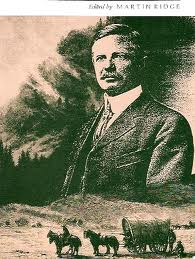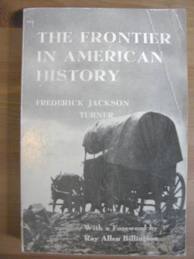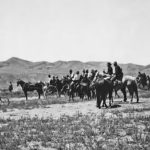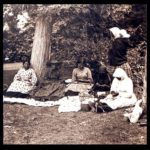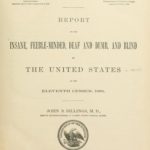The ideas of westward expansion, coast-to-coast boundaries, and bountiful natural resources were entwined within the American consciousness (see last post). Historian Frederick Jackson Turner studied the impact that free land–a huge part of America’s westward expansion–and its consequent settlement had on America and Americans. He eventually solidified his thoughts into what is known as his “frontier thesis,” which explains America’s historical development.
Turner believed that America’s frontier had given Americans a unique character and history. In 1893, he delivered a paper entitled “The Significance of the Frontier in American History” to historians in Chicago, who did not pay much attention to it.
Turner argued that settlers pushing against a continually receding frontier line created an opportunity for every new generation to experience primitive conditions. When settlers went west, they first met savagery, then trade, then ranch life, then farming, and finally, manufacturing. The lessons of the frontier were learned by each new generation, and these renewed lessons contributed to Americans’ social character.
Turner said that many American traits, like coarseness, strength, acquisitiveness, practicality, inventiveness,and restless energy, were attributable to the influence of the frontier. His underlying belief was that America’s vast territorial expansion was a dominant factor in its history.
Though it was initially rejected by scholars who viewed American history primarily via its European roots, Turner’s thesis eventually became enormously influential. In turn, later historians have debated and disagreed with Turner’s ideas. Many historians today reject nearly every assumption Turner used, such as the idea of “free” land: western land had not been “free,” since it was seized at the expense of its original owners, for instance.
However, at the turn of the century, Turner’s frontier thesis struck a chord with Americans who were beginning to romanticize the Old West. However, Turner’s concern that a closed, or settled, frontier might have a negative and painful impact on the nation went relatively unnoticed.
